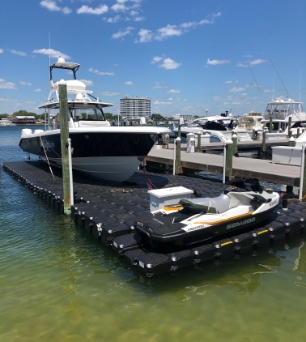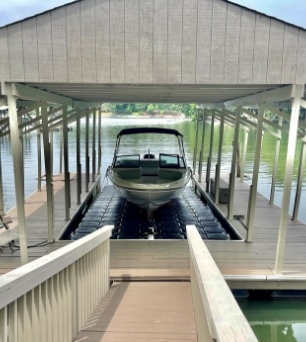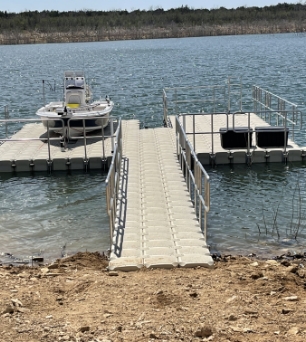When it comes to waterfront properties, having a well-designed and functional dock is essential for maximizing enjoyment and convenience. Whether you own a boat, or a personal watercraft, or simply want a platform for leisure activities, choosing the right type of dock is crucial. In this comprehensive article, we will explore the world of docks, covering everything from the different types of docks available to the materials used in their construction and the benefits they offer.
Docks serve a variety of essential purposes for boaters, waterfront property owners, and commercial establishments. Understanding the diverse applications of docks can help you determine the type and design that best suits your specific needs. Here are some common uses for docks:
One of the primary functions of docks is to provide a secure and convenient location for mooring and docking boats, yachts, and personal watercraft. A boat dock offers a stable platform for safely tying off vessels, making it easier for boaters to embark and disembark without the hassle of anchoring.
Docks are often used to store watercraft when not in use. Whether it's a jet ski or waverunner, PWC docks provide a designated space to keep your watercraft easily accessible and protected from the water's elements.
Docks are designed to facilitate easy access to boats and watercraft. They provide a smooth transition from land to water, allowing passengers to easily embark and disembark. This convenience is particularly beneficial for individuals with mobility challenges or when loading supplies, equipment, or luggage onto the vessel.
Docks are frequently used as platforms for various water-related recreational activities. They serve as launch points for swimming, diving, fishing, and other water sports. Additionally, docks can provide a space for relaxation, sunbathing, or socializing near the water's edge.
Docks play a crucial role in commercial applications, such as marinas, ports, and waterfront businesses. They offer docking and mooring facilities for rental boats, charters, and commercial vessels. Marinas utilize docks to accommodate a large number of boats and provide services like fueling, maintenance, and amenities for boaters.
Specialized docks are constructed to support seaplanes requiring a smooth transition between land and water. These docks feature ramps or adjustable sections, enabling seaplanes to take off and land conveniently.
Docks can also contribute to environmental conservation efforts. A floating dock, for instance, can minimize shoreline disruption and protect sensitive habitats by providing an alternative to traditional fixed docks that require more extensive construction.
Docks come in various types and designs, each with unique characteristics and advantages. Understanding the different types of boat docks can help you choose the most suitable option for your specific needs. Here are some of the main types of docks:

Floating docks are versatile structures that remain on the water's surface, providing a stable platform for mooring boats. They are designed with buoyant floats or pontoons that keep the dock afloat. Floating docks are known for their adaptability to changing water levels, making them suitable for areas with fluctuating tides, rivers, or lakes. They are typically made of durable materials like polyethylene or polypropylene and can be customized in size, shape, and configuration. The modular design of floating docks allows for easy assembly, disassembly, and reconfiguration.
Fixed or permanent docks are stationary structures anchored to the shoreline or a solid foundation. These docks provide a stable and long-lasting docking solution. Fixed docks are commonly constructed using materials such as wood, aluminum, or composite materials. They are ideal for areas with stable water levels and are commonly found in residential, commercial, and marina settings. Fixed docks can be customized to accommodate different lengths, widths, and decking options.
Sectional docks, also known as modular docks, consist of individual sections or segments that can be easily connected or disconnected. These docks offer flexibility in terms of size, shape, and configuration. Sectional docks typically feature aluminum or steel frames with decking options such as composite materials or wood. The modular design allows for easy customization and adjustment to changing needs. Sectional docks are popular among waterfront property owners due to their versatility and ease of installation.
Wheel-in docks, also referred to as roll-in docks, are designed for convenient installation and removal. These docks feature large wheels or rollers that allow them to be easily wheeled into and out of the water. Wheel-in docks are particularly useful in areas where seasonal changes in water levels occur or where frequent relocation is required. They are typically lightweight and portable, making them user-friendly for individuals who prefer a dock that can be easily managed without specialized equipment.
Piling docks are constructed by driving vertical pilings or posts into the waterbed and attaching the dock structure to these supports. Piling docks provide a sturdy and secure solution, especially in areas with deeper water or unstable shorelines. The pilings can be made of wood, concrete, or metal depending on the specific requirements. The dock surface is often constructed using decking materials such as wood or composite, providing a stable and durable platform for mooring boats.
Crib docks are built using large wooden or concrete cribs filled with rocks or other materials. These cribs form the foundation of the dock and provide stability. Crib docks are commonly used in areas with rough water conditions or uneven lake bottoms. The design of crib docks allows them to withstand strong waves and currents, making them a robust choice for challenging environments. They can be customized in size and shape to accommodate various docking needs.
Specialty docks encompass specific dock designs tailored to unique requirements. For example, seaplane docks are designed with ramps or adjustable sections to facilitate seaplane takeoffs and landings. Kayak/canoe docks feature lower profiles and wider platforms to facilitate easy entry and exit for small watercraft. Fishing docks may include additional features like rod holders or cleaning stations. Swim platforms are designed for recreational swimming or sunbathing. These specialty docks cater to specific activities or watercraft, providing customized solutions for users with particular needs.
Docks are constructed using various materials, each with advantages and considerations. Here are some common types of dock materials:

Wood has been a traditional and popular choice for dock construction due to its natural aesthetics and strength. Common types of dock wood include pressure-treated lumber, cedar, and tropical hardwoods like ipe. Wood offers durability, especially when properly treated or sealed to withstand exposure to water and weather elements. However, regular maintenance, such as sealing and staining, is typically required to prevent rotting, warping, and decay over time.
Composite materials, such as wood-plastic composites (WPC) and plastic decking, offer a blend of natural aesthetics and low-maintenance properties. These materials are a combination of wood fibers or particles and recycled plastics. Composite decking is resistant to rot, decay, and insect damage, and it does not require regular staining or sealing like natural wood. It provides a durable and eco-friendly alternative to traditional wood decking, although it may be more expensive upfront.
Aluminum docks have gained popularity due to their lightweight nature, durability, and resistance to rust and corrosion. Aluminum is a low-maintenance material that can withstand harsh marine environments. It offers an excellent strength-to-weight ratio, making it easier to handle and install. Aluminum docks can be customized to different sizes and configurations, and they are often preferred for their longevity and minimal upkeep requirements.
Concrete docks are sturdy and long-lasting. They are often used in commercial or industrial applications where durability and strength are essential. Concrete docks can withstand rough water conditions and offer stability for larger vessels. They are typically constructed using precast concrete sections or poured-in-place techniques. While concrete is durable, it may require additional measures, such as proper sealing and reinforcement, to prevent cracking and spalling over time.
Steel docks are known for their strength and durability. They provide a sturdy and reliable platform for docking boats. Steel docks can withstand heavy loads and harsh conditions, making them suitable for commercial and industrial applications. However, steel is prone to corrosion, especially in saltwater environments. To mitigate this, steel docks are typically coated or galvanized to enhance their resistance to rust and extend their lifespan.
Plastic or polymer docks are lightweight, low-maintenance, and resistant to rot, corrosion, and UV damage. They are commonly made from high-density polyethylene (HDPE) or polyvinyl chloride (PVC) materials. Plastic docks are easy to install, durable, and often modular, allowing for customization and versatility. They are excellent for residential docks or areas with differing water conditions and deep or shallow depths.
Taking a closer look at one of the major dock varieties, floating docks are versatile structures that provide a stable and flexible platform on the water's surface. They offer numerous benefits, including adaptability to changing water levels, ease of installation, and portability.
Here are different kinds of floating docks commonly used:

Modular floating docks consist of individual sections or modules that can be connected to create a larger dock system. These sections are typically made of durable materials like polyethylene or polypropylene and feature integrated flotation chambers. Modular docks offer great flexibility as they can be easily reconfigured or expanded to accommodate changing needs. They are popular for residential docks, marinas, and commercial applications.
Pipe floating docks are constructed using large-diameter pipes or pontoons that provide buoyancy and stability. The pipes are often made of steel or high-density polyethylene (HDPE) and are interconnected to form a framework. The decking is then attached to the pipe structure to create a platform. Pipe floating docks are known for their strength and durability, making them suitable for heavy-duty applications like commercial docks and marinas.
Floating dock systems with finger piers incorporate additional platforms, known as finger piers or fingers, extending perpendicular to the main dock. These finger piers allow boats to access individual slips or berths from the main dock. They provide additional space for mooring multiple boats or for amenities such as fueling stations, pump-out stations, or seating areas. Floating dock systems with finger piers are commonly used in marinas and commercial waterfront facilities.
Cube or block floating docks utilize modular cubes or blocks made of high-density polyethylene (HDPE) or other durable materials. These cubes or blocks are interlocked and secured to form a stable floating platform. Cube floating docks are versatile and can be configured into various shapes and sizes to suit specific needs. They are often used for recreational docks, swimming platforms, or as temporary docking solutions. They even can build in drive-on docking features to allow for dry storing your watercraft.
Floating docks have gained popularity as versatile and practical solutions for waterfront properties, marinas, and commercial facilities. Unlike traditional fixed docks that are permanently attached to the shoreline or seabed, floating docks offer unique advantages that make them a preferred choice for many boating enthusiasts and watercraft owners. From their adaptability to changing water levels to their ease of installation and low maintenance requirements, floating docks provide a range of benefits that cater to different needs and environments.

These versatile structures can accommodate a wide range of watercraft. Whether you own a personal watercraft, a small boat, or a larger vessel, floating docks provide a convenient and secure platform for docking, boarding, and disembarking. Here are some of the common types of watercraft that can utilize floating docks:
Upgrade your waterfront with a premium floating dock from Jet Dock. We are the trusted provider of top-of-the-line floating dock systems. With our extensive selection of high-quality docks, we have the perfect solution to meet your specific needs. Whether you're a homeowner looking for a residential dock or a marina operator in need of a commercial-grade solution, Jet Dock has you covered.
Take the next step towards owning a superior floating dock. Contact us today and get started on the journey to the best dock you'll ever own.
Order a floating dock today!
Contact Us